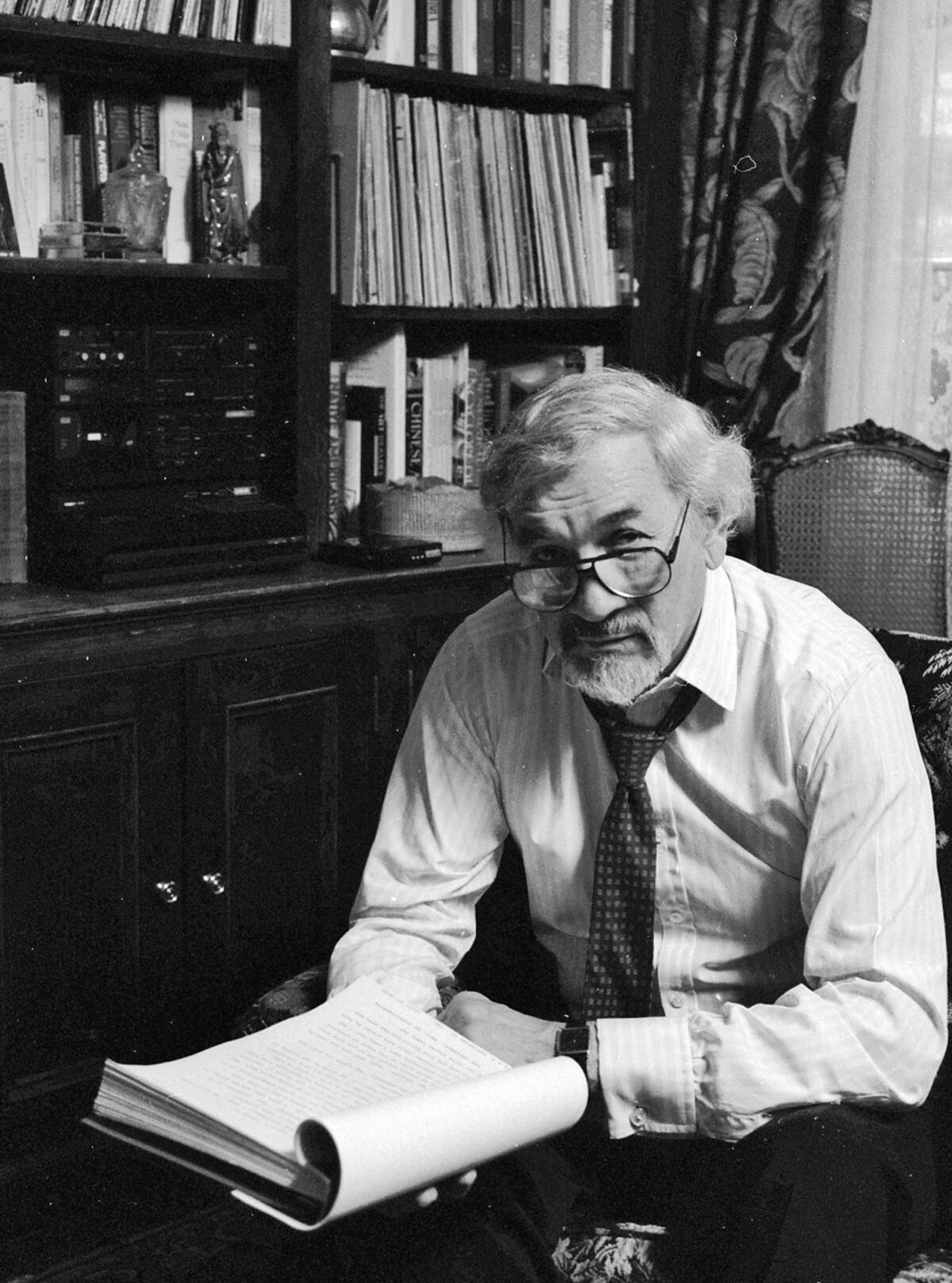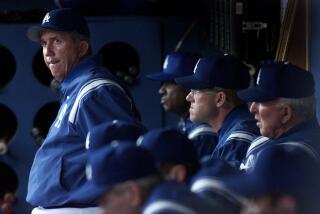George Nicolau, who ruled against MLB owners in collusion cases, dies at 94

George Nicolau, who ruled against baseball owners in two major collusion cases and cut short drug-related suspensions of several players, including former Dodger Steve Howe, has died in New York at age 94.
Nicolau, who died Jan. 2, also had served as president of the National Academy of Arbitrators
Nicolau took over as the independent chairman of Major League Baseball’s arbitration panel in 1986 after owners fired Thomas Roberts, who ruled teams acted in concert against free agents after the 1985 season. Nicolau decided teams acted in concert against free agents after the 1986 and 1987 seasons. The cases were settled in 1990 when management agreed with the players’ union to pay affected players $280 million.
In another notable decision, Nicolau decided in 1987 to cut short a season-long suspension of free agent pitcher LaMarr Hoyt to 60 days. Hoyt had been penalized for his involvement in three illegal drug incidents during 1986.
Nicolau decided to reinstate Howe in November 1992, overturning a lifetime ban imposed by Commissioner Fay Vincent the previous June. The former Dodger was suspended seven times for infractions related to drug or alcohol use. Nicolau determined that Howe had a psychiatric disorder and that the commissioner’s office didn’t adequately test him. Howe died in 2006 in a car accident.
In a case with impact for many players, he ruled in 1986 against pitcher Dennis Lamp’s grievance that Toronto held him out of games so he could not accumulate bonuses hinged to his games played.
“George Nicolau was an outstanding professional, a true giant among labor arbitrators,” said Commissioner Rob Manfred, who often appeared before Nicolau as a management lawyer. “He deftly handled many difficult cases in baseball and always had the respect of both parties.”
Nicolau also served as the independent arbitrator for the NBA and the National Basketball Players Assn. from 1979-81 and the NHL and the NHL Players Assn. from 1993-96.
Nicolau remained baseball’s panel chairman until 1995, when he was replaced by Nicholas Zumas. Nicolau’s term is the second longest in baseball behind Shyam Das, who served from 1999-2012.
“Players owe a great debt of gratitude to George Nicolau,” current union head Tony Clark said in a statement, adding the arbitrator “helped preserve the integrity of free agency.”
A Detroit Tigers fan, Nicolau was a son of Greek immigrants who ran restaurants in Detroit and Jackson, Mich. He kept Hank Greenberg’s picture hanging in the kitchen of his Manhattan townhouse.
“He became a friend, with all the attributes you’d want in one,” said Gene Orza, the former chief operating officer of the Major League Baseball Players Assn. “He was generous, witty, smart, principled, and kind. ... He’d have made a great novelist.”
Nicolau was born in Detroit on Feb. 14, 1925, then moved with his family to Jackson when he was about 5. He went into the Army Air Corps as a second lieutenant, flew four missions in B-17 Flying Fortresses over Germany as a bomber navigator during World War II and lost a leg during his service.
After a year’s convalescence, he attended the University of Michigan. He went on to Columbia Law School and became a labor lawyer for 12 years.
As an arbitrator, Nicolau ruled in disputes involving ABC, NBC and the National Assn. of Broadcast Employees and Technicians. He became the NBA’s arbitrator after he met former New York Knicks player Bill Bradley, who introduced him to NBA union head Larry Fleischer, who, in turn, took him to speak with NBA Commissioner Larry O’Brien.
Nicolau also was the arbitrator for the Major Indoor Soccer League.
In addition to sports and television, Nicolau arbitrated disputes in aviation, communications and entertainment. He joined the board of governors of the National Academy of Arbitrators in 1986 and served as president in 1996-97.
He is survived by sons Brien and Tony and six grandchildren. His wife, Siobhan, died in 2013.
More to Read
Start your day right
Sign up for Essential California for the L.A. Times biggest news, features and recommendations in your inbox six days a week.
You may occasionally receive promotional content from the Los Angeles Times.






